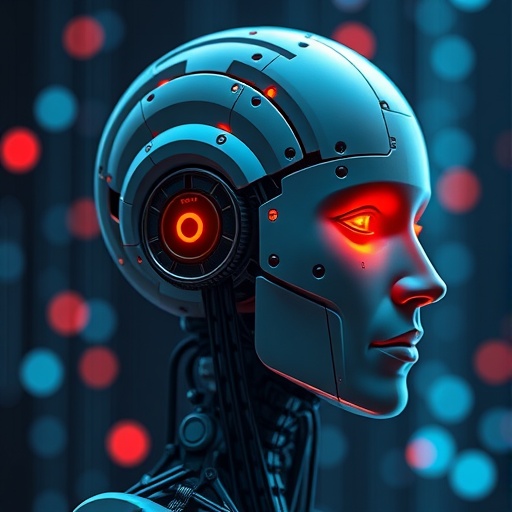In an era where artificial intelligence continuously reshapes the boundaries of technology, a significant breakthrough has emerged from Brown University. Researchers have unveiled insights that demonstrate striking correlations between the mechanisms of human learning and those employed by AI systems. This groundbreaking work bridges the realms of cognitive science and machine learning, illuminating how both humans and AI integrate different learning methodologies in a similar fashion.
The study, spearheaded by postdoctoral research associate Jake Russin, aims to articulate the nuanced interplay between two critical learning modes: flexible, context-driven learning and slower, incremental learning. These two approaches mirror the functions of working memory and long-term memory found within the human brain. This discovery not only enhances our understanding of human cognitive strategies but also informs the design of more intuitive artificial intelligence systems.
A deeper exploration reveals that humans often employ two distinct strategies when acquiring new knowledge. For instance, when learning the simple rules of games such as tic-tac-toe, individuals typically engage in “in-context” learning. This method allows for rapid understanding of rule structures through minimal examples. Conversely, incremental learning requires time and repetition, akin to the extensive practice involved in mastering an instrument, such as playing a song on the piano. Researchers had long acknowledged the coexistence of these two learning styles in both humans and AI, yet the interaction between them had remained somewhat elusive.
The research team’s innovative approach revealed that the relationship between these methodologies can be likened to the dynamics of working and long-term memory in humans. To put this theory to the test, Russin employed a cutting-edge technique known as meta-learning. This type of training is designed to enable AI systems to learn about their own learning processes. Through various experiments, the team discerned critical attributes of both learning styles, significantly advancing the understanding of how they operate in tandem.
One particularly illuminating experiment involved assessing the AI’s ability to engage in in-context learning. By tasking the AI with recombining familiar concepts—such as colors and animals—in novel scenarios, researchers examined whether it could successfully identify new combinations, like a green giraffe, that had not been previously encountered. Through rigorous testing involving around 12,000 similar tasks, the AI demonstrated a remarkable capacity for recognizing and identifying new pairings, showcasing an important facet of its learning capability.
The findings from this study indicate that both humans and AI experience enhanced flexibility in in-context learning as a direct result of previous incremental learning experiences. This phenomenon mirrors human learning processes, where repeated exposure to a variety of situations cultivates a more agile cognitive response. Consequently, just as players may grasp new board game rules more quickly after mastering numerous past games, both AI and humans can learn more effectively through cumulative experiences.
Moreover, the researchers uncovered intriguing trade-offs in this learning dynamic. They noted parallels between AI’s learning retention capabilities and those observed in humans. Interestingly, the more difficult the task was for the AI, the stronger its retention of the learned information. This observation aligns with the notion that errors during learning prompt cognitive systems, be they human or AI, to update their long-term memory structures more effectively. In contrast, actions performed error-free—while contributing to flexibility—do not engage long-term memory in a similar manner.
As Michael Frank, a leading scholar in computational neuroscience and one of the research team members, explains, these revelations illustrate how insights gained from analyzing learning strategies in artificial neural networks can enrich our understanding of the complexities of human cognition. The synthesis of these insights presents a more unified perspective on human learning, unveiling connections that had previously been overlooked within the field.
The implications of this research extend far beyond academic curiosity; they provide critical considerations for the ongoing development of AI technologies. With the acceleration of AI integration into sensitive fields such as mental health, ensuring that these systems are intuitive and trustworthy is of paramount importance. The researchers emphasize the necessity for both human and AI systems to possess a mutual awareness of their respective cognitive processes and to recognize the similarities and differences that exist in those processes.
This research effort was made possible through support from the Office of Naval Research and the National Institute of General Medical Sciences, highlighting the collaborative nature of scientific advancement. By intertwining the expertise of cognitive science and artificial intelligence, this study represents a pivotal step toward forging connections between human and AI learning paradigms.
In conclusion, the remarkable findings from Brown University not only shed light on the intricacies of cognition but also hint at a future where AI can interact with human systems in a more understanding and context-sensitive manner. The potential to harness these insights for developing advanced AI tools opens up new realms of possibility, underscoring the importance of continued exploration at the intersection of human cognition and artificial intelligence.
Subject of Research: The interplay between in-context and incremental learning in humans and AI.
Article Title: Parallel trade-offs in human cognition and neural networks: The dynamic interplay between in-context and in-weight learning.
News Publication Date: 28-Aug-2025
Web References: Proceedings of the National Academy of Sciences
References: 10.1073/pnas.2510270122
Image Credits: Brown University
Keywords
Artificial intelligence, Cognition, Neuroscience




